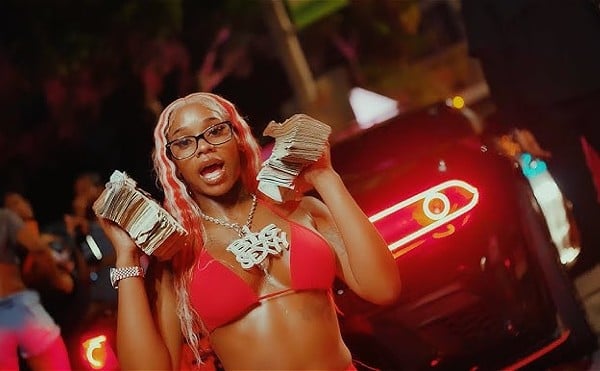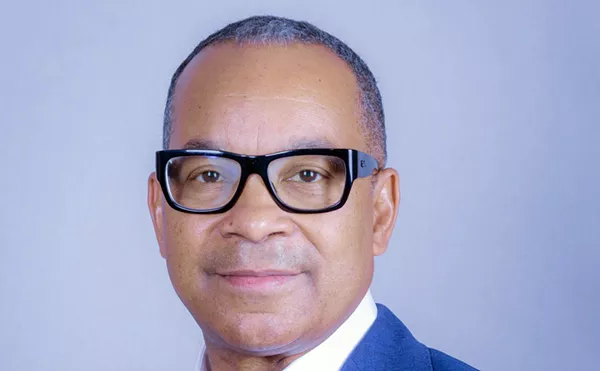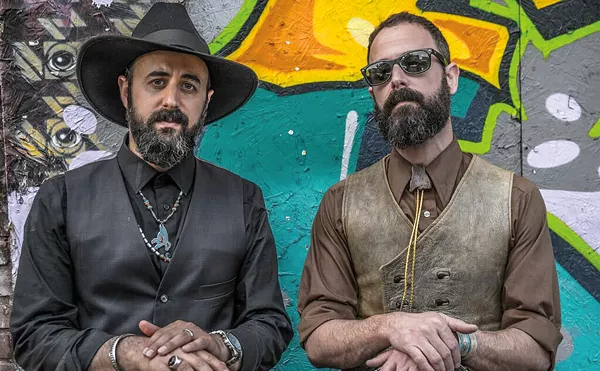Though records are most commonly thought of as a way to listen to music, they were also the first medium to document the majesty and mystery of the spoken human voice. Local poet and former Streetside Records employee Philip Gounis is a lifelong collector of spoken-word records. He will be releasing his new poetry book Upgrading the Allusion at the Archive tonight, Monday, April 25 at 7 p.m. He will be performing pieces with live musical accompaniment by bassist Rich Kruse.
We met at his south city loft apartment, which looks like it could have been straight out of Greenwich Village in the '60s. At a table full of vintage Rolling Stone's and underground comics, we discussed Bob Dylan, beat writers and the importance of spoken word on vinyl.
Last Collector Standing: Having worked at Streetside Records since the beginning of the CD era, are you surprise that vinyl has survived this long?
Gounis: I'm not that surprised. I worked there in the '80s. I worked at the Streetside in Ballwin, and then the one in Florissant. When CDs started to sell I just didn't feel like the buyer got the complete artifact. Not only was it a situation that the music didn't have as full of a sound, but [they lack the] great knowledge and information you can get from liner notes... you had to squint with CDs to get that same knowledge. I'm not really surprised. There is a real value to a vinyl record and the packaging.
How did you start collecting?
When I was a kid if you turned on the radio you would hear Doris Day or Frankie Laine. I can remember before Rock n' Roll got popular. You would hear, "(How Much Is) That Doggie In the Window?" When people like Little Richard and Chuck Berry came along, it was really an exciting thing.
Harry Belafonte was probably the first record I bought. It was called Calypso. I have an older brother. I remember we had a little crystal radio hooked up so we could hear all kinds of stations. We're talking the mid to late '50s, Johnny Cash, Buddy Holly that was all part of the beginning of it
Another thing that I try to relate to people who weren't around then is if you can imagine there were only three TV stations in St. Louis. There were only a handful of radio stations. There wasn't this proliferation of media like there is now, so it was an exciting event when a new Elvis record came out or if there was a James Dean movie in the theater.
It was the same with rock 'n' roll shows. I think the first concert I went to was the Rolling Stones in 1966. Brian Jones was still with them. They had Rick Derringer and the McCoys open up for them. There wasn't so much of it, so you really valued those events and those particular artifacts when you could experience them.
Did you consider rock 'n' roll music to be rebellious music?
I can remember when it was not mainstream, and it was associated with a term in the '50s called juvenile delinquents. "Rock Around The Clock" was the soundtrack for the movie Blackboard Jungle. A lot of people... felt that rock 'n' roll was a subversive art form that was corrupting the youth of America. In fact, there was a whole project here in St. Louis, for a while they made a big issue of smashing rock 'n' roll records on the air. It was a big promotional thing. "We're not going to play rock 'n' roll anymore!" Then they would film the DJs smashing the records. Of course, it didn't go away.
Do you have any records that you think are unique to your collection?
The only record Streetside ever put out: Bob Brozman. He played with R. Crumb and his Cheap Suit Serenaders. He does a kind of ragtime thing. It says copyright 1977. I think it was the only record that Streetside ever put out. That would be one that nobody else has. [laughs]









